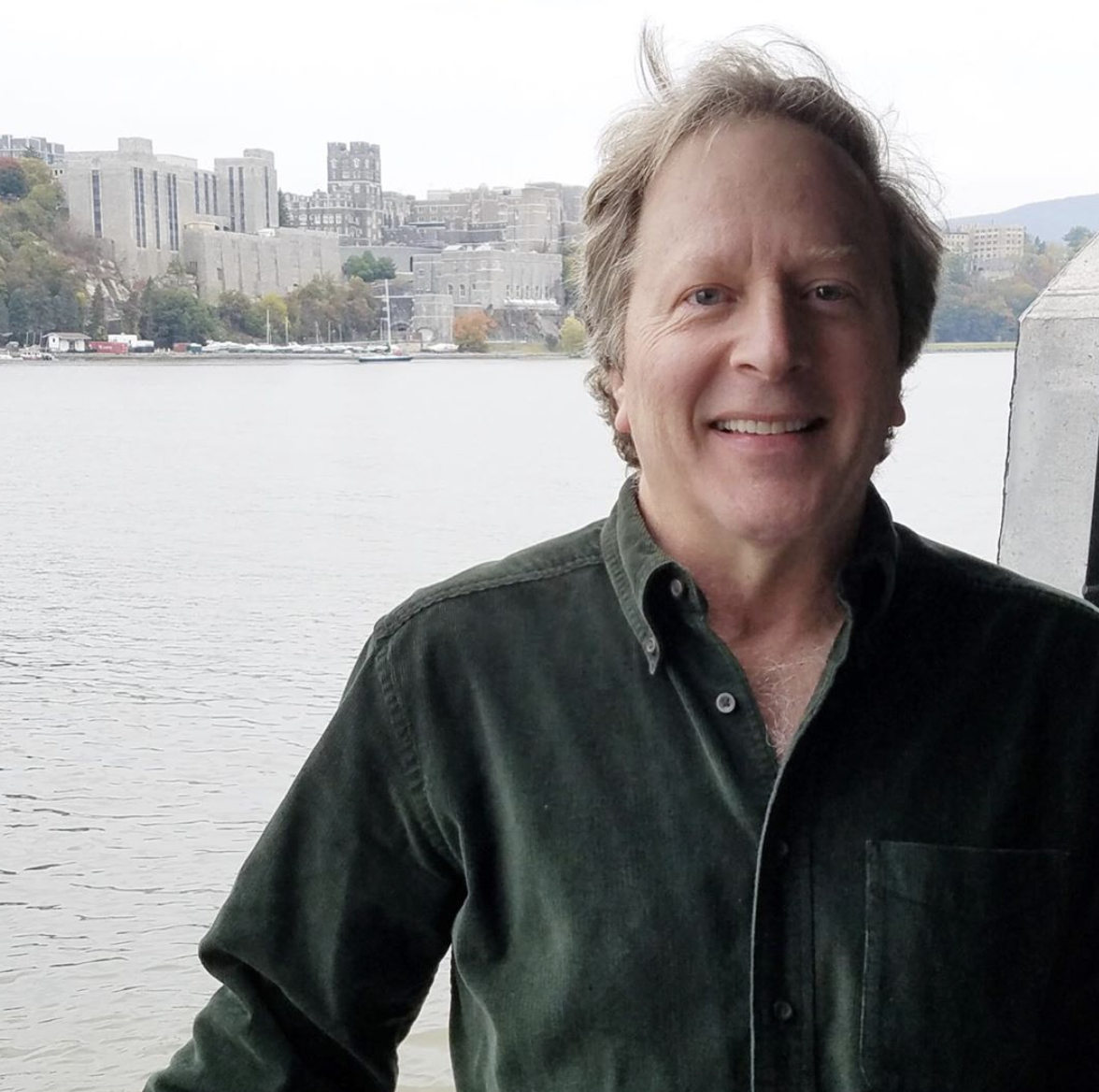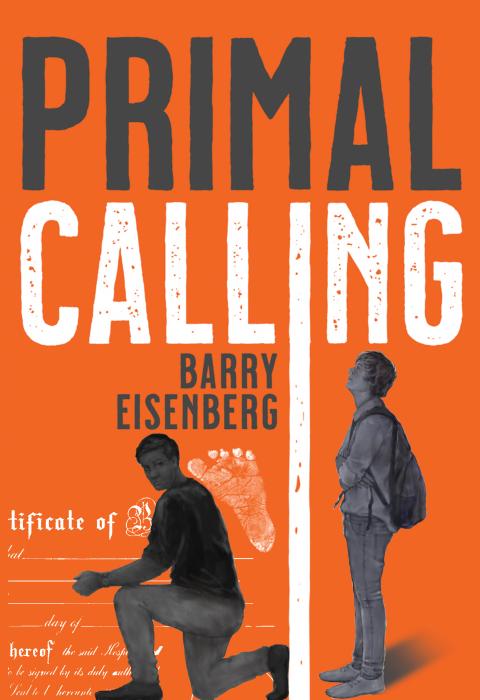Bravery, Tragedy, and a Family Bond
It was 1943. Izbica was a ghetto in Nazi-occupied Poland that had become a hub for transporting Jews from Poland and Austria to the Belzec and Sobibór concentration camps where they would be gassed to death. Many, too, would be killed right there in Izbica, the last image their eyes taking in was a rifle pointing directly at them.
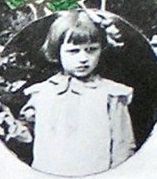
Nine-year-old Miriam Binder clung tightly to her mother’s hand as she and a large group of strangers in Izbica were forcibly herded into a cemetery. Stricken by the sight of a pit filled with dead bodies that lay before them, Miriam and her mother looked away, terrified they would soon be lying at the top of the burgeoning heap of death.
Many of that group were to be killed right there, lined up side-by-side and shot, their assassins dispassionately carrying out their ruthlessness with methodical sharpshooter precision. Their last breath would be taken as they vaulted backwards, crumpling lifelessly into the trench of carnage, victims of a slaughterous barbarity that ought to fall outside the limits of human imagination.
As young Miriam glanced about, her eyes fixed on a young woman who was on the ground, struggling, writhing in pain. Miriam realized that the woman was in the final stages of labor. There she was, giving birth, bringing a new life into this place of murderous brutality. As young as Miriam was, the spine-chilling irony was not lost on her.
The woman’s struggles caused a commotion which distracted the executioners, whose attention abruptly shifted to concern that the ditches were becoming overcrowded. They postponed their deadly mission as they argued about options. This diversion gave Miriam and her mother a brief window in which they could escape.
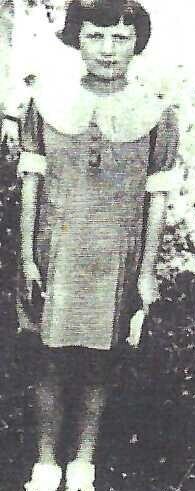
Miriam Binder, later called Maria, was my father’s first cousin. Along with her parents and two brothers, she moved about stealthily as the Nazi occupation of Poland took hold, attempting to stay below the radar, constantly looking over their shoulders. They would slip into friends’ houses, then quietly ease out when the fear of being caught seemed imminent. It was overwhelming. The close calls piled up and eventually ran out for all. All but Maria.
A few months ago, I received a warm email of introduction from a man living in Poland. His name is Krzysztof Niewidziajlo. Krzysztof explained that his wife Anna had been researching their family history and came upon a story I wrote about Maria three years ago. In it, I recounted how she was hidden during the war by a kind family and eventually married Jan, one of brothers. Readers of my blog may recall that story, published shortly after Maria passed away at age 87: Uplifted by Maria’s Spirit.
Krzysztof shared that it was his family, and especially his grandmother, Janina Niewidziajlo, who made noble efforts to hide the Binder family, ultimately paving the way for Maria to be saved. In doing so, Janina and her family were exposed to inconceivable risk.
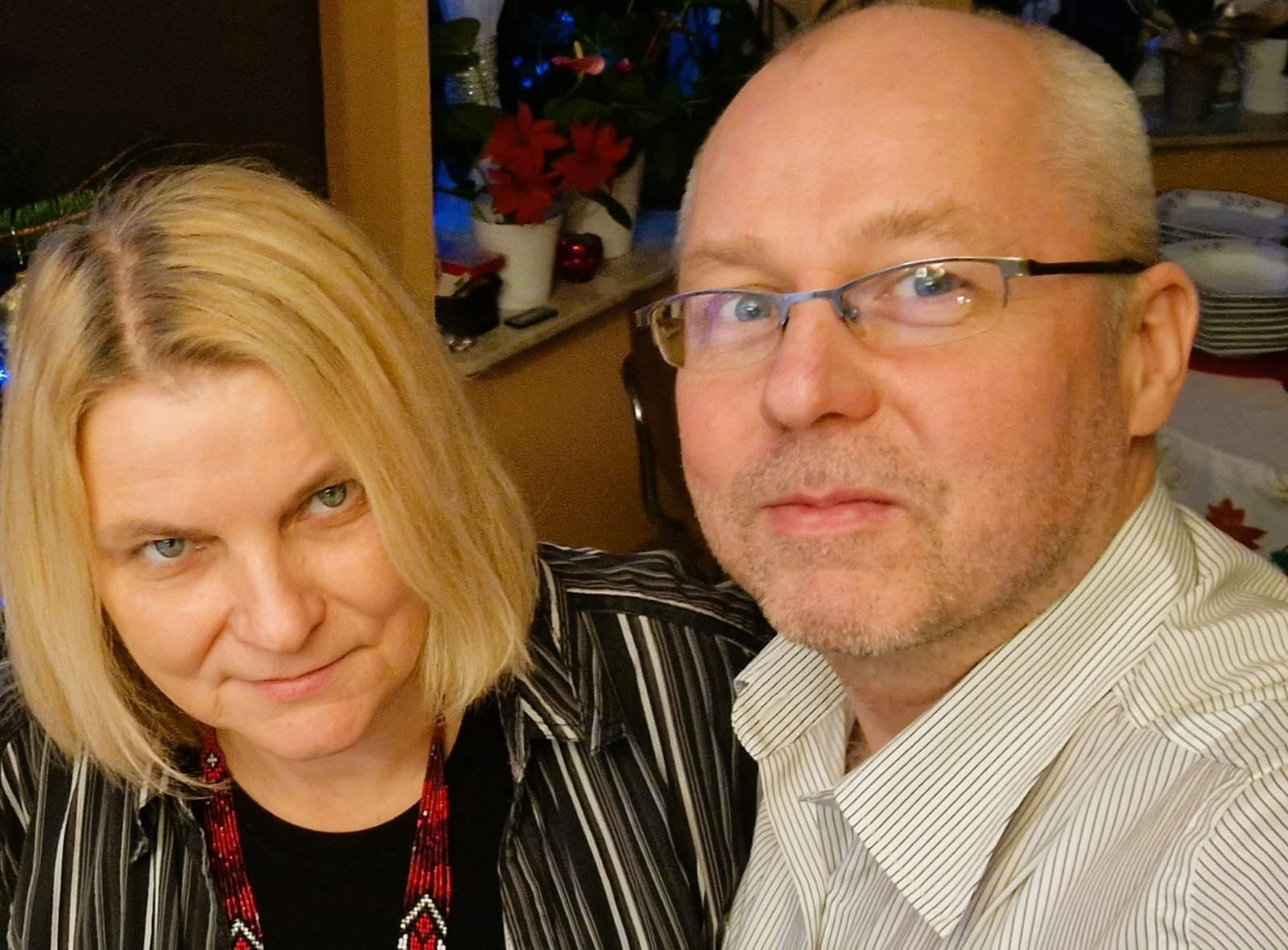
In the months since Krzysztof reached out, we have had an extended exchange in which I have learned more about Maria and her family and their harrowing experience during those dreaded years than I had from spending time with her during her visits to the U.S. I had always sensed a reluctance from Maria to share the most horrific parts of her history. I was unaware of that terrifying near-death episode at the cemetery. Krzysztof learned of it from Leszek Janeczek, a physician and researcher of note of culture and history in the region in which the Grebers and Binders lived.
I have also learned much about the exceptional Niewidziajlo family who brought Maria, her parents Irina and Max, and remaining brother Jonas into their home. Only now have I discovered the remarkable extent of Krzysztof’s family’s efforts to provide them with safe harbor. In a story filled with tragedy, Maria’s other brother Zelek had already been shot to death by the time the Niewidziajlo family intervened.
Krzysztof’s grandmother Janina Niewidziajlo, nee Greber, along with her husband Michal and their children, had long lived in Krasnystaw, Poland. Krasnystaw had also been home to my family, including my paternal grandparents Ida and Sam, their young daughter Doris, and Ida’s five siblings, including Irina. (My father George was born several years later in the U.S.)
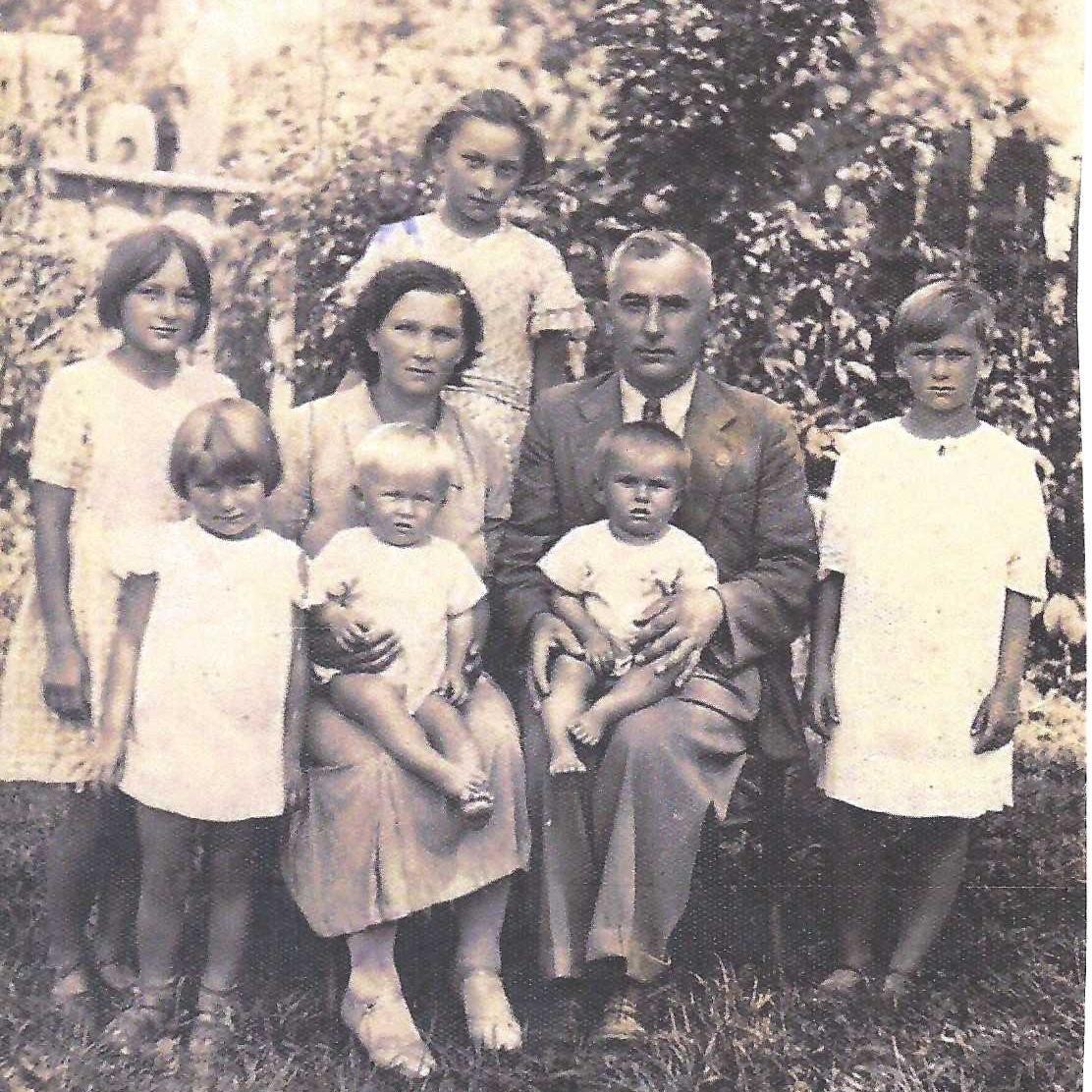
Almost all my family emigrated to the U.S. before World War II. In fact, most left Poland just as World War I was getting underway. The signs of discrimination against Jews were becoming increasingly widespread – and foreboding – like higher taxes for Jews and restrictions on land ownership. And while those would eventually seem mild compared to the atrocities that would come just a decade later, they were worrisome enough to spur the family to pack up and seek a new life elsewhere.
Determined to remain in Poland to care for their cherished grocery store and enjoy their ties to their community, the Binders were the exception in the family. It was in Krasnystaw that Janina came to know the Binders. Had it not been for that relationship, in all likelihood Maria would not have lived to see her teen years.
Janina’s resolve to help the Binders by sheltering them in her home was an act of remarkable courage, an exercise teeming with peril. Sadly, as explained by Krzysztof’s aunt (below), it would prove largely futile. Sensing the inevitable, Irina consented to Janina’s recommendation to have Janina’s brother, Emil Greber, take Maria to Lviv to stay with his family and live among them as one of his children.
It was this openheartedness, this magnanimity of spirit, on the part of Janina and Emil that saved Maria from the ghastly destiny that would befall her parents and brothers. All were shot to death in cold blooded viciousness, four people among millions of victims who were butchered, shot, gassed, and burned alive, people whose only “crime” was being born into an ethnicity deemed less than human.
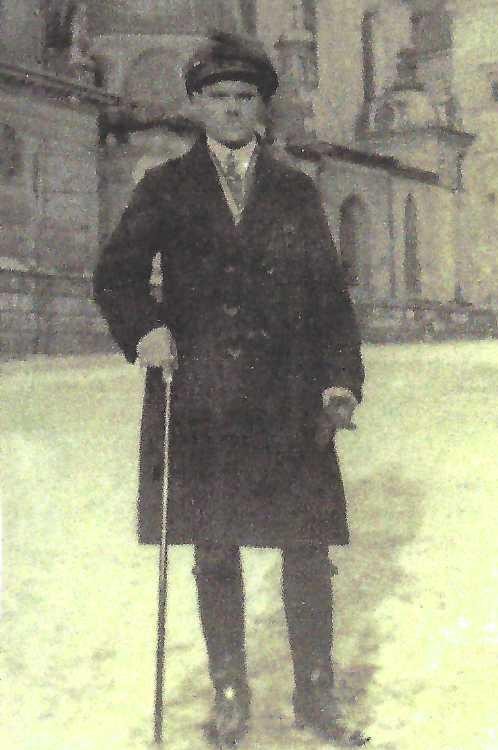
When we think of the Holocaust, or at least when I do, my mind immediately veers toward the six million whose lives were snuffed out from unfathomable savagery. Six million – that dreaded number, with its distinctive capacity to simultaneously shock and numb, is indelibly fixed as the emblematic representation of the astonishing vastness of that genocide. Its very immensity can obscure the notion that each victim was a real person, a human being with a name, someone’s mother or father, a brother, a sister, a caring neighbor, a child. Each was a person with a life story, a family, a history, and possibly even a dream.
The Niewidziajlos, too, have a story. As I have been learning about Krzysztof’s family, I feel as though I have come to know them. And as I have, I am even more moved by their willingness to have exposed themselves to existential threat by taking in a Jewish family.
I’ve also come to appreciate that Krzysztof’s family and mine are joined by a history that is deeply connected, with each family’s identity shaped to some degree by the crossing of paths of our relatives almost 90 years ago. One family voluntarily placed themselves in the ultimate endangerment, risking their very lives to give hope to a family, and then life to their little girl who had lost everything. That family, unlike ours, had a choice. It is a stunning act of moral fortitude and selflessness.
But it did not come easily.
Arriving at that decision was more a zigzag than a straight shot. The path was strewn with their own unsettling experiences, including their displacement from society as they fell out of favor with new authorities who sought to shatter traditions and values held near and dear over generations. And most traumatically, Krzysztof’s grandfather, dearly beloved by his wife Janina and children, and who fought valiantly for his homeland, was killed for his activist efforts to defend his city from being overrun.
In sharing how Maria came to the Grebers, it is best to present the narrative as they experienced it, in their words. Anna recorded Krzysztof’s Aunt Wieslawa’s recollections, providing a first-person account of her family’s plight during the Nazi occupation and her mother’s and Uncle Emil’s resolve to hide Maria. The words are Wieslawa’s, translated from Polish, and unedited.
In closing my narrative, I’d like to add this personal note: I am very grateful to Krzysztof for having reached out to me and share his family’s story. Krzysztof and Anna’s commitment to chronicle their family history and ensure that future generations know of the trials, tribulations, and basic goodness of their ancestors is inspiring. It is a privilege to know them. But even more – Krzysztof’s family placed their own survival in jeopardy to help our family. Today, although my family and Krzysztof and Anna’s may live a world apart, because of our deeply meaningful family bonds, we are all family.
Aunt Wieslawa passed away at age 93 in 2022. These are her words, as presented to Anna and Krzysztof who translated from Polish to English and shared with me:
Our dad Michal Niewidziajlo and his brother Szymon, who were counted among the ‘Lviv Eaglets’, took part in the defence of Lviv and the eastern borderlands of the Republic. After Poland regained independence, with his mother Janina née Greber, a native of Lwów, became teachers in Krasnystaw and were married in Lviv in 1924.
They worked in local education until the war. All of pre-war Krasnystaw knew them because they were teachers. Dad was a real local government activist and community worker. He was involved in many actions for the benefit of the youth and the town itself. It was in 1935, when the funeral ceremonies for Marshal Piljudski were being organised in Poland, that he was the first, with a black armband on his arm, to lead countless crowds in a march to the solemn mass in the parish church.
When war broke out, he was mobilised. He defended Lviv. He did not return from the September campaign for a long time. The family lost hope that their loved one was alive. He was wounded, which is why it took him so long to return. Upon his return, he immediately became involved in the structures of the underground organisation. He was its commander in the Krasnostawa region. He drove carts all over the district and met with conspirators. He had weapons at his disposal, which my friend and I would later distribute to indicated addresses.
In the spring of 1940, my father often did not spend the night at home, but at a neighbour's friend's house, and went to school in the morning. Unfortunately, in June 1940, the Gestapo came to our house. On 5 June 1940, he was arrested by the Germans and taken from the house to the prison in Krasnystaw.
When the Germans came, one of them asked in broken Polish if Mr. ‘Widzi nic’ lived here. This was the last meeting with my father. Father asked to be allowed to say goodbye to his children and wife. He was allowed to. He took a lock of hair from each child. On that day, 17 more people were arrested with him. These were the first arrests in our town. They included the intelligentsia of the city of Krasnystaw who belonged to the underground (lawyers, teachers, 1 MP), certainly according to someone's list of denunciations.
To this day, it is not known who betrayed them. In a few days, they were all taken to the prison in Chelm. A total of 18 people, never to return to their families. .... The families were not officially notified of the deaths of those shot. The German authorities only instructed the magistrates' offices in Krasnystaw and Chelm to delete them from the records of the inhabitants of those towns.
Our mother was left alone with six children. The youngest twin brothers Janusz and Lesjlaw were less than 3 years old at the time. It was very difficult for us. We lived only on our mother's meagre teaching pension and the help of friends from suburban villages (they gave us milk, potatoes, flour, bread). These were Zakracie, Kolonia Zakracie, Maaochwiej Maay, and Kolonia Góry. To these good people from the surrounding villages, we often walked many kilometres on foot.
I remember that on major holidays, unknown, members of the underground, would supply us with meat, fat, flour, etc. Apart from a little help from outside, we supported ourselves from our home garden. We had our vegetables and fruit. My eldest sister Irena in 1942 got a job in the Magistrate's Office in Krasnystaw. It was already easier for us. Mum also kept chickens, ducks and, in addition to giving the children milk, two dairy goats, which she placed in a cell in the backyard of the property. In the days when Dad was still with us, we prayed together and commended the family to God's protection.
Before the war, I remember there were four Jewish grocery shops in Zadworz. On the left, to the south, you could see Zastawie through the very extensive meadows from the window, and on the right, Roajsko. In these shops it was common to buy by the book. I remember the veal merchant Bregman, who himself brought fresh and delicious veal to their house. He also brought matzah, which he served to the household. There weren't many houses in this part of town as there are now, but every other one was probably Jewish.
Immediately after Dad's arrest - Mum Janina Niewidziajlo, on whom rested the duty and the hardship of supporting the children, took to her house the Binder Jewish family (Ita and Mendel [Irina and Max] and the two children Jonas and Miriam [Maria]), who lived on 3-Maja Square, on the first floor on the opposite side of the Seym.
On one occasion, Uncle (Janina Niewidziajlo's brother) Emil Greber visited us and took the little girl Miriam with him to Lviv. Thanks to this, she survived the war.
In 1943, the Germans accidentally discovered the hiding Jews when they came out of their hiding place for a breath of fresh air. When the Germans came to the house, they took Mum and the Binder couple to prison. Their son was killed in a nearby meadow. My siblings were taken to an orphanage run by the sisters. Only I was not taken, as I was too big to be placed in an orphanage.
Later, when I was left here alone and the Germans came for me, two Germans. I thought to myself - either they will shoot me or they will take me away somewhere. It turned out that Mrs. Fryczówna, she was such a teacher, found out somewhere that they had come for me. The teacher started talking to them in German, talking, talking. I didn't understand them after all. She took me by the hand and they let me go. Then I went to the orphanage, because I couldn't come back here.
The sisters Irena and Alicja had to go into hiding and did not return home. On the night of 19/20 September 1943, the prison was recaptured from the Germans without a single shot being fired. Mother Janina and the Jews Mendel and Ita Binder were freed. What was the fate of the Binders is not known. Mama had to hide until the end of the war. It is certain, however, that Mama did not want to have the death of her friends on her conscience. The Holocaust survivor Miriam Binder, on the other hand, resented her mother for giving her up to strangers to save her life.
I was the first to return to our house after all that wandering, on 2 August 1944. In the house after the German had moved out, I found emptiness. There was literally nothing! All belongings had been stolen. With the help of friends who were kind to us, I recovered some of the destroyed furniture and began to live there.
On 5 September my mother returned from Lviv. Life began to be difficult then. My brothers and my sister Krystyna did not return until our house was more or less in order. Sister Irena was so traumatised by the misfortune that befell us that she never returned to Krasnystaw. After leaving Lviv as a repatriate, she and her aunt settled in Krakow’.
It is impossible to describe in what poverty we had to live. In this situation, my older sister Irena took her two younger brothers to Kraków, who had finished school there. The educated brothers and their children have also made a life for themselves. One lives in Dzierzoniow, the other in Tomaszów Mazowiecki. My eldest sister had already died.
After a little high school graduation, I went to work and only then did I finish middle school and pass my baccalaureate. However, I did not get married and only both of us stayed in the family home with my mother. The painful experiences we experienced consolidated us greatly. Even though each of us now lives our own life, the distances between us have not weakened the inner family bond.
When I asked my mother why she put us all at risk of death by hiding Jews, she said: I didn't want to have their deaths on my conscience. Mum's attitude in hiding them was not recognised by our environment, which sometimes expressed its opinions about us in a malicious and hurtful way. Few people are able, in a selfless way, to help those in need and they measure others by the same selfish yardstick.
We never expected profits or applause from anyone for this. We had no purpose in publicising what our mother, as an educator, considered her duty towards our Jewish neighbours. Our parents instilled in us a love of the homeland.
As far as we knew Dad, we are convinced that he would never have surrendered to the communist regime imposed on Poland by Stalin.
Without boasting or pathos, I will say what may seem trivial to many, especially young Poles at a time of widespread devaluation of the following maxim, but I assure you that it was permanently implanted in the hearts of their children by their parents, which is why it has been and will remain our motto in all situations, and it is: God, Honour and Fatherland.
